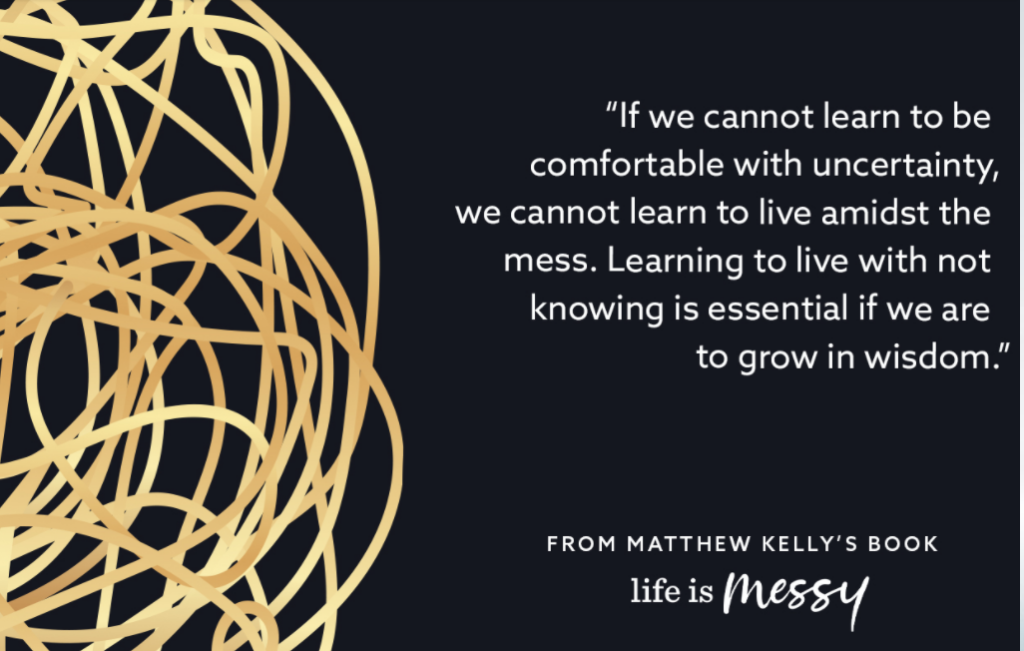
Christianity isn’t an abstract philosophy. It’s a complete way of life. Consequently, profession of belief in Christianity isn’t simply an intellectual nod of the head, but a commitment to live in such a way as to express concretely one’s convictions in the everyday world. Such engagement demands a sense of direction, a sense of individual mission and purpose. This is supplied by the particular vocation each of us is given. When we discover our own unique calling, regardless of what it may be, we find the spiritual true north by which to plot our course.
— from the book Perfect Joy: 30 Days with Francis of Assisi by Kerry Walters









